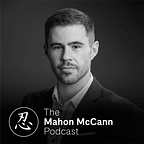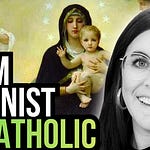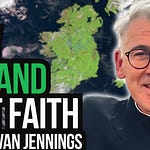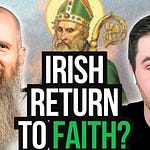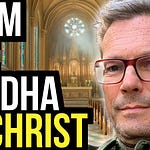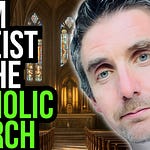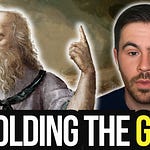In the last few essays, we have followed John Vervaeke's argument in the Awakening From The Meaning Crisis series to rebuild the conceptual scaffolding of meaning that is missing for the modern mind. A large part of this conceptual scaffolding is human growth and development because a large amount of living a meaningful life is feeling like we are growing & developing. This experience of growth and development is situated within a normative order. A normative order is how we know right from wrong, identify if we are getting better or worse, know how we should, must, and ought to behave. Ultimately, a normative order orients us morally in the world to ourselves and our relationships.
In Veraveke's Awakening From The Meaning Crisis Series, he argues that the normative order comes from the 3rd-century Neo-Platonist Sage, Plotinus. Plotinus did not consider himself an innovator but a communicator of the existing Platonic tradition. Plotinus looked at his work as 'fleshing out' the anagogic described by Plato dramatically in the myth of the cave. Plotinus essentially integrated all the best parts of ancient philosophy - Platonism, Aristotelian Science and the therapeutics of Stoicism.
So to understand Plotinus, we must first introduce Aristotle and then the Stoics to the canon of this series. Brief and sketchlike as their introductions may be, their addition is unavoidable and necessary for the argument to continue. I will broadly describe John's argument in Episode 6 & 7 of AWFTMC in this essay but then do some integration and comparison with Peterson's Hero Meta-mythology and Alastair McIntrye's re-vivification of Virtue Ethics in After Virtue.
Aristotle's Theory of Growth & Development.
Aristotle (384 - 322 BC) was Plato's student but famously split from him, saying,
"I love Plato, but I love the truth more."
Aristotle split with Plato over change, more accurately, human growth and development. If Plato was concerned with the eternal and changeless being, Aristotle was concerned with becoming. This series is about growth and development, so Aristotle is a cornerstone of our discussion (Vervaeke, EP 6).
Aristotle was the one who invented the concepts of 'potential' and 'actuality', which we often take for granted these days. He used the analogy of a chair to describe the process - the chair's wood is the potential, and the finished version is the actualised chair. He points out that the wood, pre-actualisation, could be a table or a ship. However, once you introduce the form of a chair, then the wood (potential) starts acting like a chair. When you impose the form of the chair on the wood, it starts acting like a chair - you in-form it. This is where we get the notion of 'in-formation' from and 'de-formation' and 'trans-formation' (Vervaeke, EP 6).
Plato's theory of the forms was discussed implicitly in the essay. Verveake argues that a form is the 'Structural-functional organisation' of an object. For example, a bird isn't just a feature list (a tail, feathers, beak, skin, organs etc.), but rather the bird is a 'gestalt'; how these parts fit together and function as a whole is called a bird. Aristotle thinks we understand what a bird is if we can grasp this form - the form is what renders something intelligible or understandable. For Aristotle, to know something is to share in its form. For example, who knows better what a chair is? The person who can describe a chair or the person who can actually make a chair? Aristotle would say the latter because the person who can make the chair has 'con-formed' their mind to the structural-functional organisation of the chair to turn the potential wood into the actualised chair. This is called his 'con-formity' theory of knowledge; when you make the chair, you share the same form in mind. In other words, you become 'one'. Aristotle believes that what living things are doing in growth and development is the same as the wood and the chair. In other words, we are self-making. (Vervaeke, EP 7)
The Central Role of Virtue Ethics For Growth & Development.
For Aristotle, how we are self-making depends on our character (that word that keeps cropping up in this series). Character is made of constraints on our behaviour, virtues and vices, which brings us back to virtue ethics which we discussed in the second essay. Vervaeke explains if somebody is behaving out of character, say they lie when they usually tell the truth, we would say
'they are acting out of character'. In other words, they are not acting according to the constraints that normally govern their behaviour; their norms.
For Aristotle, virtues are constraints on our growth and development that we can consciously control and influence. The ultimate aim of virtue ethics is Wisdom, and Vervaeke argues wisdom is a meta-virtue, which basically means "the ability to consciously cultivate your virtues to create a set of virtues that are regulating your growth and development, so you actualise your potential." (Vervaeke, EP 7)
This sounds nebulous, but Aristotle recommends a 'Golden-mean' practice to identify the proper constraints on our behaviour. He identifies the Virtue as a mean between two extremes, a deficiency and an excess. For example, Aristotle believed that the Virtue of courage is a mean between the extremes of cowardice and recklessness. The virtuous person would act with courage in the face of danger but would not act recklessly without regard for the consequences. Therefore, if we pay attention to our experience and identify examples of cowardice and recklessness in ourselves or others, then we can start to identify the mean of Courage and consciously cultivate these constraints on our growth and development to actualise our potential (which is also developing wisdom).
For Plato, we had to structure the psyche (inner harmony) to connect us to reality. Aristotle gives us a more fine-grained picture of this process, by extending the Platonic anagoge with a self-cultivation of character that systematically overcomes self-deception, realises wisdom, and enhances the structure of the psyche and your contact with reality. For Aristotle, this is to be rational, and to be as fully rational as possible is the function of a human being. (Veraveke, EP 7)
Aristotle's Telos & Well-Being.
Well-Being is a popular topic these days, and I like to think about it as Erich Fromm describes in The Art of Being: well-being is functioning well as a human being. Again, this echoes the first example from McIntyre that we discussed in a previous essay. To normatively evaluate human functioning, we must specify a telos: we can say a watch is a good watch if the watch tells the time, because telling the time is the function of a watch. The function, telos, or end that the watch is made for and its proximity to or from said end, allows us to normatively evaluate the watch.
Aristotle gives us a Telos, which is to become as 'fully-human' as possible. He gives the example of the telos of a knife, which is to cut, and therefore the Virtue (excellence) of a knife is to cut well. Aristotle concludes then if the uniquely human thing is to be rational, this type of self-making we discussed, then the telos is to become as rational as possible. As Vervaeke argues, 'to become as 'fully-human' as possible. Aristotle's telos combined with Christianity was the telos of humanity for over thousand years (pretty good innings).
John writes in the AFMC series,
"What are those characteristics that are unique to us? (meaning humans) Well here is where Aristotle gives the Axial revolution answer: Your capacity for overcoming self-deception, your capacity for cultivating your character, for realising wisdom and for enhancing the structure of your psyche and your contact with reality. That's what rational means."
These day's we often conflate being rational with being logical, but that’s not what it used to mean. Instead, it was much more like lovingly aspiring to be the type of person described in the above description of rationality - often exemplified by Socrates. Aristotle's telos is captured in what is called 'Eudamonic Well-being' as opposed to 'Hedonic Well-being', which is about maximising pleasure and avoiding pain. The word 'eudaimonia' is a hotbed of translation issues, but the most fitting in English is 'Flourishing', a life well-lived through Virtue. The end goal of Eudaimonic well-being is self-actualisation, meaning, and becoming 'fully rational' in the sense that we previously discussed.
John gives a more in-depth description in the series when he says,
"Wisdom is the cultivation of a virtual engine, a character that regulates your self-development, in fact, your self-making, so that you can actualise your potential. You can live up to your potential and what does living up to that potential mean? It means, and we talked about [it], it means moving through that hierarchy that we talked about last time. The hierarchy of actualisation from the mere plant to the animate thing to the mental thing to the rational thing. So to be wise, to live up to your potential, is to cultivate a character that most helps you realise your capacity for rational self reflection, your capacity to appropriate and take charge of your ability to engage in self actualisation, self realisation and to do so in such a way that fulfills the potential of your humanity that you most realise, reveal, actualise, the characteristics that make us uniquely human."
So much of this series is about actualising the self, developing the self that can lead you to that point, and that set’s up this hierarchy of being from the less real, purely potential being, to the more actualised, integrated, complexified and hence more real being. For Aristotle, a person who lived only as a plant or an animal would be a failed and debauched human being, as Vervaeke explains. Hence to become more real is through rationally, reflectively, cultivating character and structuring your own psyche. In this framework, being a more integrated, more actualised self is what it means to be a 'good' person, and I consider it to be the work of 'self-development'. We will encounter this hierarchy of being again in greater detail when we discuss Neo-Platonism and Plotinus.
Virtues Ethics & The Hero Meta-Mythology.
As suggested previously in the series, the telos of human functioning was participation in the process of relevance realisation, the Hero Meta-mythology presented narratively, and so, does this cause problems with Aristotle's telos of becoming fully rational? Do we have a conflict here? Or can we integrate the two?
No. In fact, I would say Aristotle's virtue ethics is a philosophical perspective on the same process of insight and transformations of character described by the hero story for three reasons:
Virtue Ethics & Narrative Ethics are deeply intertwined.
Mcintrye argues in After Virtue that a narrative is the default description of human action. Therefore to normatively evaluate human action or suggest optimal functioning of human action, we will need to invoke narrative. In Mcintrye's argument, narratives & myths capture proper and improper Virtue and vice for our education and emulation. This is very similar to Peterson, who argues we tell stories of the individuals who embody the ideal pattern of action and then imitate them. As Peterson writes,
"First we imitate the pattern underlying admirable behaviours, then we encode that pattern into rituals, then into narratives, then into philosophical argumentation, then, finally, we gain an empirical/scientific understanding of it. In this way: "The image of the hero, step by step, becomes ever clearer, and ever more broadly applicable." (Peterson, 1999 p. 149).
MacIntyre argues that the practice of Virtue is not just a matter of following rules or principles but is instead a matter of developing a habit of acting in specific ways over time. This habit of acting is formed through a process of repetition and reinforcement and is shaped by the larger narrative structure of one's life. The link between the two is the cultivation of character, and while virtue ethics offers an explicit philosophical framework and practises for cultivating individual character, narrative ethics takes a broader, descriptive view of the same process.
They are both different perspectives on insight.
We have previously defined an insight as (from Brett's Substack): letting go of a previous way that we were framing a problem (which has been rendered dysfunctional or non-optimal for whatever reason) and adopting a new, more functional frame that allows us to solve whatever problem we are engaged with more effectively.
The hero meta-mythology is a dramatic description of an insight, while Aristotle's 'golden mean' is an individual practice to generate insight into Virtue and hence good character.
Interestingly, Wikipedia says of the earliest origins of Aristotle’s 'Golden Mean' come from Myth,
"The earliest representation of this idea in culture is probably in the mythological Cretan tale of Daedalus and Icarus. Daedalus, a famous artist of his time, built feathered wings for himself and his son so that they might escape the clutches of King Minos. Daedalus warns his beloved son whom he loved so much to "fly the middle course", between the sea spray and the sun's heat. Icarus did not heed his father; he flew up and up until the sun melted the wax off his wings. For not heeding the middle course, he fell into the sea and drowned."
Here we can see how the idea of the golden mean starts out as a lesson from a myth, a parable, but becomes operationalised by Aristotle non-narratively for individuals to cultivate their own character in the Golden Mean. I would argue, if you were to describe your experience of undertaking the golden mean in the third person, say while learning courage, we would end up with a narrative description again. If we gathered many stories of this practise of different people learning courage and abstracted from these stories the gist of learning the 'middle way', I bet we would once again end up with a kind of hero myth once again. This highlights the difference between pursuing an insight personally and then the culturally generalised vision of the structure of an insight in general. We can see in this example, how the philosophy aims at prescriptively provoking an insight while the Hero Meta-mythology provides the structure of an insight descriptively and, often, prescriptively also, though in possibly a more ambiguous form.
3. Being Wise is Optimal Relevance Realisation.
Relevance Realisation is 'our ability to intelligently ignore the vast number of non-optimal solutions and zero in on the small subset of solutions that are optimal or nearly optimal (Andersen, Substack).
Getting good at Relevance realisation is the same as the goal of Aristotle's rational telos, becoming wise:
"Your capacity for overcoming self-deception, your capacity for cultivating your character, for realising wisdom and for enhancing the structure of your psyche and your contact with reality. That's what rational means."
To be wise, would be to be like a God, and to be capable of realising what is relevant automatically in every possible situation, always knowing what to care about and how to transform yourself to care correctly. Plato argues being wise would be like being omnipotent. This is why humans can only be ‘lovers of wisdom’. But in this sense, we can align Aristotle's telos with the ideal ‘relevance realiser’ because to advance in rationality and wisdom is to improve at proportioning our attention properly, shaping our constraints into right relationship with reality, becoming better stewards of our own self-making, and having a systematic ability to overcome self-deception. This shows how the ideal of wisdom and the hero as the ‘creative explorer’, ‘realiser of relevance’, ‘self-transformer’, are deeply convergent.
Conclusion.
Aristotle provided much of the Scientific foundations for the last thousand years before the enlightenment and still has important things to teach us today. I'd like to demonstrate from Vervaeke's work on Aristotle why his theory of growth and development and the invention of potential and actuality are so relevant to our project of a modern account of self-development. We will reencounter them soon when we come to Plotinus, who brings a lot of these ideas together. Finally, I have drawn attention to identities between the ideal of the Hero Meta-mythology and Aristotle's Virtue Ethics, which is not a 1-2-1 relationship but somewhat different perspectives on the development of character from narrative and non-narrative perspectives. Either way, both aim at the cultivation of character and aim at an ideal character that is something like becoming fully rational, fully-wise, despite its impossibility.
In the following essay, we will look at the Therapeutics of the Stoics and the component of inner peace, which is so desirable to all human beings.

